By Fred Backus
/ CBS News
Walz, Bill Clinton among DNC Day 3 speakers
As Minnesota Gov. Tim Walz prepares to officially introduce himself Wednesday night to the nation, Democratic voters are feeling good about Kamala Harris‘ selection of him as her vice presidential nominee. Sixty percent of Democrats say they are enthusiastic about the pick, and almost all are at least satisfied.
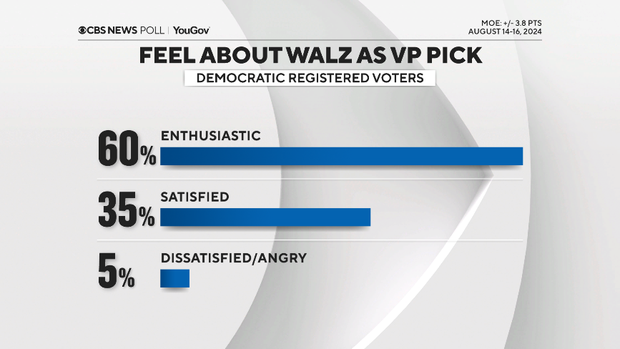
Enthusiasm for Walz matches closely the enthusiasm that met Harris when she was chosen to be Joe Biden’s vice presidential running mate four years ago. Just before the Democratic National Convention in August 2020, 58% of Democratic voters said they were enthusiastic about her selection.
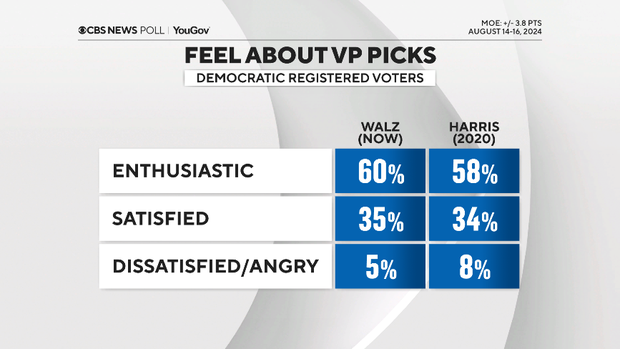
Enthusiasm for Walz among Democrats is higher than Republicans’ enthusiasm for Sen. JD Vance, who was announced as former President Donald Trump’s running mate in July during the Republican convention. Then, 51% of Republican voters said they were enthusiastic about Vance (though nearly all were at least satisfied).
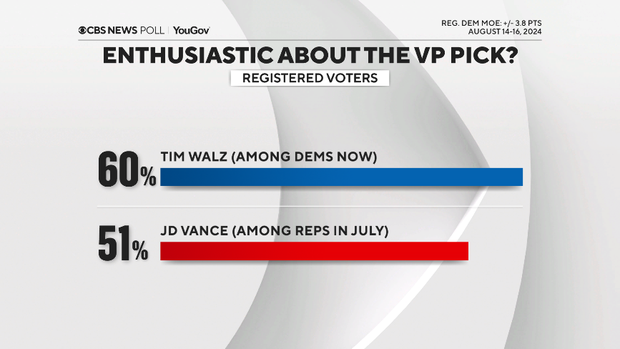
How do voters see Walz?
Voters see both Harris and Walz as politically liberal, but there are differences in how the ticket is viewed, compared to whether voters are inside or outside the Democratic Party. Voters nationwide tend to see them both as more liberal than members of their own party do.
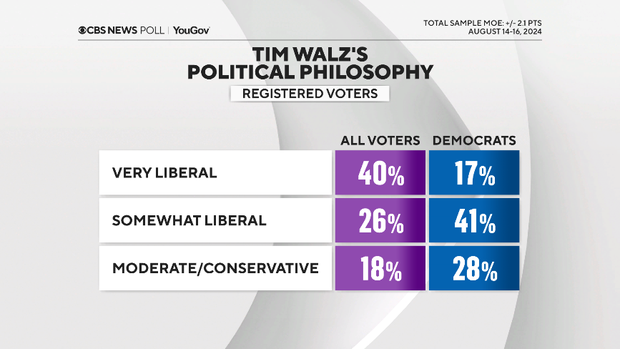
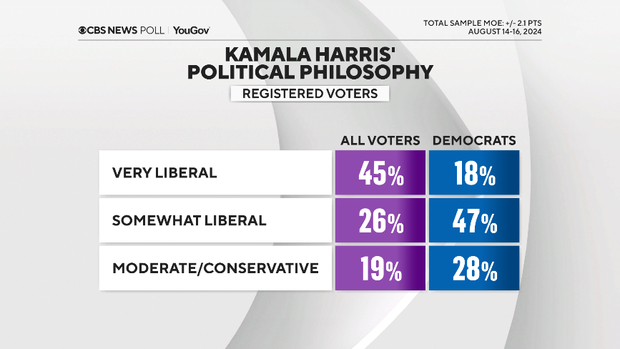
Democratic voters do tend to agree that Walz, like Harris, will fight a lot for people like them, and the more liberal Democratic voters are, the more likely they are to feel this way.
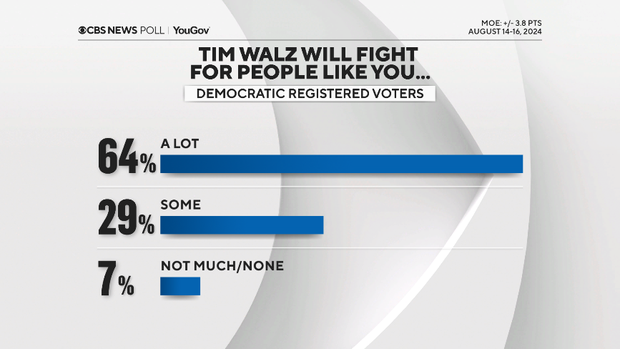
But will Walz’s selection as Harris’ running mate matter when voters make their voting decision? Harris voters say it does — at least somewhat — though just a quarter say his selection is a major factor in their vote.
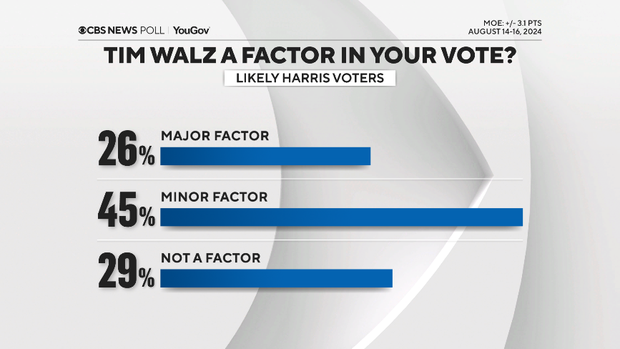
This CBS News/YouGov survey was conducted with a representative sample of 3,258 registered voters nationwide interviewed between August 14-16, 2024. The sample was weighted according to gender, age, race, and education based on the U.S. Census American Community Survey and the U.S. Census Current Population Survey, as well as past vote. Respondents were selected to be representative of registered voters nationwide. The margin of error for registered voters is ±2.1 points.


